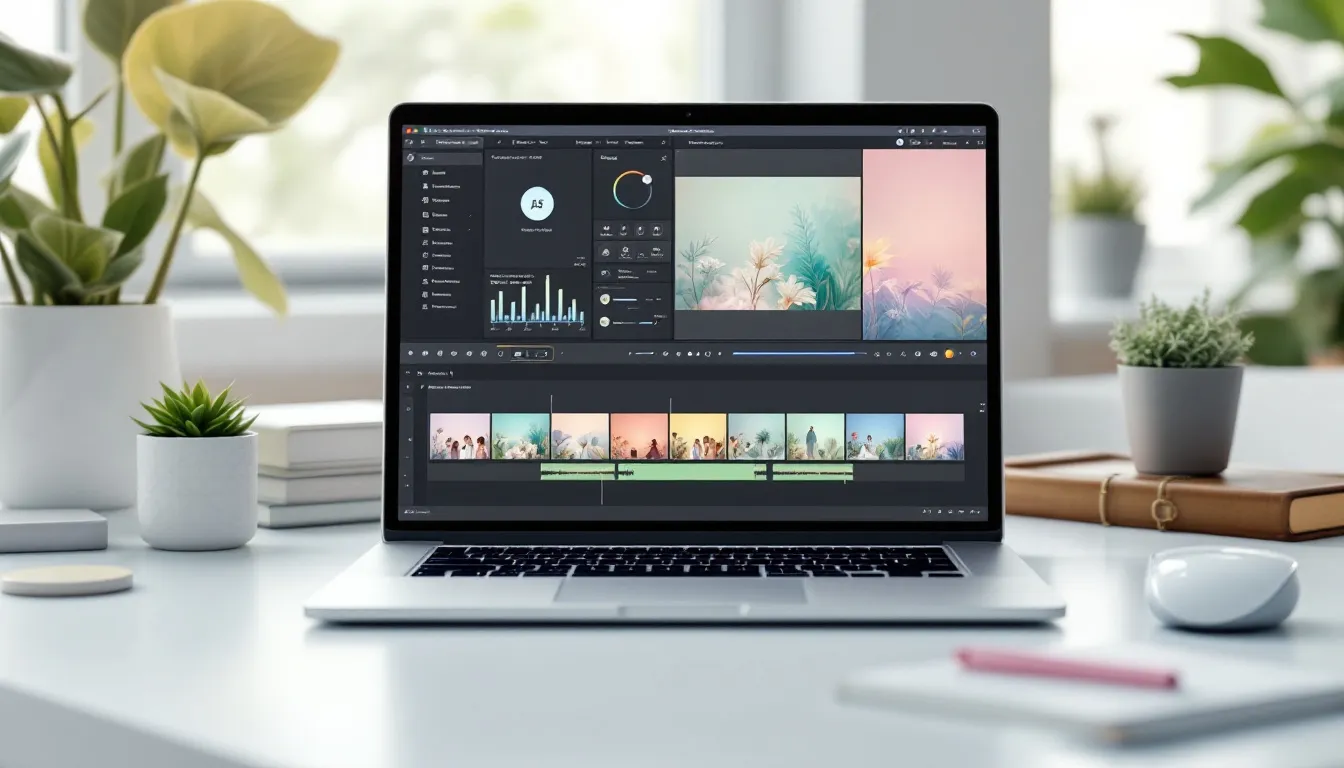Want to boost your site's SEO in 2024? Here's what you need to know about Domain Authority (DA) and Domain Rating (DR):
- DA and DR are metrics that predict how well a site might rank in search results
- They're not used directly by Google, but they're useful for SEO strategy
- Higher scores generally mean better chances of ranking well
Key points:
- DA (by Moz) and DR (by Ahrefs) both use a 0-100 scale
- They focus on backlink quality and quantity
- 42.6% of link builders use these metrics to measure success
- Over 70% of SEO pros check their DA monthly
How to improve your DA/DR:
- Get quality backlinks from reputable sites
- Create link-worthy content (like original research)
- Diversify your backlink sources
- Remove spammy or low-quality links
- Focus on user experience and site speed
Remember: Improving DA/DR takes time. It's a marathon, not a sprint.
Quick Comparison:
| Feature | Domain Authority (DA) | Domain Rating (DR) |
|---|---|---|
| Creator | Moz | Ahrefs |
| Focus | Overall ranking potential | Backlink strength |
| Best for | Estimating SEO performance | Tracking link-building progress |
Bottom line: Use DA and DR as guides, not gospel. Focus on creating great content and building solid links to boost your SEO in 2024.
Related video from YouTube
What is Domain Authority (DA)?
Domain Authority (DA) is Moz's way of predicting how well a website might rank in search results. It's like a score for your website's SEO potential.
How DA is Measured
DA uses a 1-100 scale. Higher scores? Better chances of ranking well. But how does Moz figure this out?
It's not magic. It's math. Moz's algorithm looks at over 40 factors, including:
- How many good links point to your site
- How popular your site is overall
- How trustworthy the sites linking to you are
Remember: DA isn't set in stone. It changes as Moz updates its system to match what's happening in search engines.
Why DA Matters for SEO
Google doesn't use DA directly. But it's still a useful tool. Here's why:
1. See how you stack up
DA helps you compare your site to others. If your score is 35 and your competitor's is 55, you know you've got work to do.
2. Choose link targets wisely
When you're looking for backlink opportunities, DA can guide you. A link from a DA 70 site will probably help more than one from a DA 20 site.
3. Plan your content
High DA sites often rank easier for tough keywords. This can help you decide what content to create and how to optimize it.
Using DA for Link Building
So, how can you use DA to build better links? Try these:
1. Go for the good stuff
When guest posting or asking for links, aim for sites with higher DA scores. They'll likely boost your own DA and rankings more.
2. Make content worth linking to
Great content naturally attracts links from strong sites. Think big studies or unique insights that people want to share.
3. Mix it up
Don't just get lots of links. Get different kinds of good links from various sites. It's better for your DA than tons of links from one place.
4. Clean house
Check your backlinks regularly. Get rid of any spammy or low-quality ones that might be hurting your DA.
5. Take your time
Building DA isn't a sprint. It's a marathon. Focus on improving your site's overall health, and the DA will follow.
2. What is Domain Rating (DR)?
Domain Rating (DR) is Ahrefs' way of scoring how strong a website's backlink profile is. It's like a 1-100 scale for your site's link-building success. Higher? Better.
How DR is Measured
Ahrefs looks at over 40 backlink factors to figure out DR. Here's the deal:
- It's all relative. Your score? It depends on how you compare to other sites.
- It's all about backlinks. Nothing else matters for DR.
- Each linking domain spreads its "authority" evenly among the sites it links to.
That last point? It's big. A DR-10 site linking to just three domains can pack more punch than a DR-80 site linking to a million. Sometimes, less is more in the backlink game.
Effects on SEO Rankings
Google doesn't use DR directly. But high DR often means better search rankings. Why? Let's break it down:
1. Trust Signal
Lots of good sites linking to you? Search engines think you're trustworthy.
2. Competitive Intel
Compare your DR to competitors. Spot where you can up your link game.
3. Content Boost
High-DR sites? Their pages often rank easier for tough keywords.
4. Link Hunting
DR helps you find the best link opportunities. It shows which sites might give you the most "link juice."
Building Links with DR in Mind
Want to use DR for better link building in 2024? Try these:
1. Quality First
Go for links from high-DR sites in your niche. They're worth more.
2. Mix It Up
Get links from sites with different DR scores. It looks more natural.
3. Make Link-Worthy Stuff
Create content that makes people WANT to link to you. Think original research or killer guides.
4. Keep It Clean
Check your backlinks regularly. Ditch the spammy ones. They're holding you back.
5. Play the Long Game
Building DR takes time. Stick to good practices. No shortcuts.
DR's important, but it's not everything. Use it as a guide, but don't forget about great content, user experience, and solid technical SEO.
sbb-itb-645e3f7
Domain Metrics: Benefits and Limits
Domain Authority (DA) and Domain Rating (DR) are handy SEO tools, but they're not perfect. Let's look at what they're good for and where they fall short:
Domain Authority (DA)
DA gives you a quick look at how well your site might rank. It's like a fortune teller for your SEO efforts, but don't take its word as gospel.
DA is great for:
- Getting a quick read on your site's SEO health
- Sizing up your competition
- Finding potential link-building targets
But it's not so great because:
- Google doesn't use it for ranking
- Spammers can game it with low-quality links
- It misses some key SEO factors
Domain Rating (DR)
DR is all about backlinks. It zooms in on how strong your site's backlink profile is. This narrow focus is both good and bad.
DR shines when:
- You want to know how strong your backlink game is
- You're hunting for good link-building opportunities
- You need up-to-date info on recent changes
But it falls short because:
- It ignores other important SEO stuff
- It might make you obsess over link building
- Google doesn't use it directly for ranking
Here's a side-by-side look:
| Feature | Domain Authority (DA) | Domain Rating (DR) |
|---|---|---|
| Creator | Moz | Ahrefs |
| Scale | 1-100 | 0-100 |
| Main Focus | Overall ranking potential | Backlink strength |
| What it Considers | 40+ factors (links, content quality, etc.) | Mainly backlinks |
| Best For | Guessing overall SEO performance | Checking link-building progress |
Don't forget, these metrics are useful, but they're not everything in SEO. John Mueller from Google says it straight: "Google doesn't use Domain Authority at all when it comes to Search crawling, indexing, or ranking."
So what's the bottom line? Use DA and DR as helpers, not holy grails. They're good for spotting your site's strengths and weaknesses, but don't get obsessed. Focus on making great content, building solid links, and giving your users what they want. That's what really counts in SEO.
Conclusion
DA and DR aren't magic bullets for SEO, but they're pretty darn useful. Here's the lowdown on using these metrics for your 2024 link building game plan:
Google doesn't directly use DA or DR for rankings. But don't dismiss them. They're like your SEO crystal ball, giving you a peek at how your site might perform in search results.
Here's the scoop: DA and DR are all about links. Good links. Lots of them. From sites that matter. In 2024, it's quality over quantity, folks.
So, how do you put this knowledge to work? Let's get down to brass tacks:
1. Quality trumps quantity
Don't chase every link out there. Go for the good stuff from reputable sites in your niche. One link from a DA 70 site can outweigh ten from DA 20 sites.
2. Make content worth linking to
Create stuff people WANT to link to. Think original research, deep dives, or unique insights. HubSpot's Domain Authority checker? That's the kind of resource SEO pros love to reference.
3. Mix up your backlinks
Don't put all your eggs in one basket. Aim for links from different sources. SEO experts say 25-30 quality referring domains linking to your key pages can make a big difference.
4. Keep it relevant
Links from sites in your industry pack more punch. A tech blog getting links from other tech sites? That's the sweet spot.
5. Watch and tweak
Keep an eye on your DA and DR scores, but don't obsess. According to Authority Hacker, 42.6% of link builders use these metrics to measure their efforts. Join the club, but remember – it's a marathon, not a sprint.
6. Think big picture
Links are crucial, but don't forget other SEO factors. Fast load times, mobile-friendly design, and great user experience all play a part in your SEO success.
Improving your DA and DR takes time. It's not an overnight miracle. Focus on creating valuable content, building industry relationships, and consistently applying these strategies.
As you tackle link building in 2024, keep this Moz quote in mind:
"To get the best results, use both DR and DA together. DR helps you focus on acquiring high-quality backlinks, while DA gives you an overall view of your SEO performance."
Now go out there and build some killer links!
FAQs
How to increase domain authority in 2024?
Want to boost your domain authority (DA) in 2024? Here's how:
1. Get quality backlinks
Focus on links from respected sites in your field. It's not about how many, but how good. Ahrefs found that sites with more referring domains often have higher domain ratings.
2. Create content worth linking to
Make stuff that people want to share. Think guides, original research, or unique takes. Remember Backlinko's Google search results study? It got shared over 14,000 times. That's the power of original, data-driven content.
3. Clean up bad links
Regularly check your backlink profile. Get rid of any spammy links. Tools like Moz's Link Explorer or Ahrefs' Site Explorer can help spot the bad ones.
4. Make your site user-friendly
Your site should be easy to use, fast, and mobile-friendly. Not sure where to start? Try Google's PageSpeed Insights for tips.
5. Link internally
Use internal links logically. It helps search engines understand your site better and spreads link juice around.


